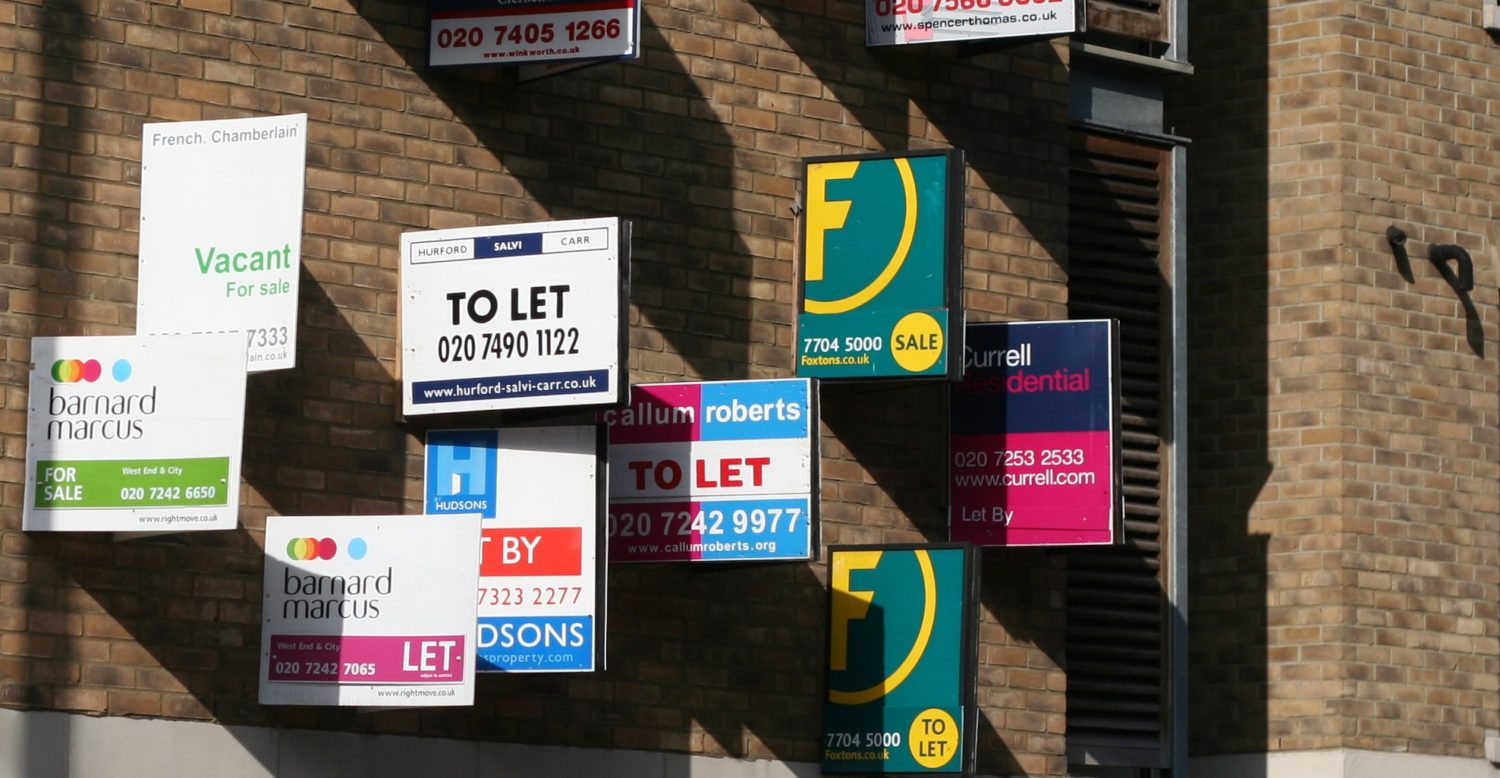A manifesto for generation rent
It’s up to us to fight for a fair housing market, argues Nona Buckley-Irvine.
“Have you bought, or are you renting?” Every time I’m asked this question I’m flummoxed – how on earth as a 25-year-old could I be buying a flat in London? Not just because of the ridiculous expense, on top of the fact that I, like many young people in London, have debts and multiple overdrafts that need to be paid off, but having listened to my parents talk about the cost of replacing windows, getting the pointing done, or buying a new boiler, there’s nothing I’d like less than the responsibility and cost of maintaining a house.
Yet for renters, the existing narrative around housing still focuses on home ownership. More surprisingly, this narrative is prevalent within the left. It is striking that in the post-Thatcher years, her housing legacy remains largely unchallenged.
For many young people, renting is impossible. And the problem is more than just high rents – it’s because job insecurity affects the likelihood of people passing credit referencing checks; it’s because of the extortionate deposits people are expected to pay up front; and of course, because low wages mean that the costs associated with renting end up pricing people out of the rental market.
In other countries, the tables are turned. Think of Germany, where renting is geared in favour of the tenant. On average, tenancies last 11 years compared to 2.5 in England, according to the IPPR. In Berlin, the percentage of income spent on rent is 21 per cent, compared to 40 per cent in London. Although there are cultural differences in attitudes towards renting, Germany is a key example of how things can be different.
Yet in an era of unscrupulous landlords and rising rents, we should be striving to remodel renting as a fierce competitor to home ownership. And there is a moral imperative to do so, because young people face unique challenges in renting today. As ‘generation rent’, it’s up to us to fight for a fair housing market.
There have been cases of students going on rent strike, such as at UCL, resulting in rent freezes. However, students often have more protection to take this kind of action because they are part of an institution that has lines of accountability – the real challenge is for young working renters to be able to seize control of the rental market.
Here are some ideas for how we can remodel the renting market.
Fixed term contracts shut young people out of renting – as does low pay
If you’re lucky enough to have a comparatively high salary, you don’t need to worry about having a guarantor in order to become a tenant. Speaking from experience, if you don’t earn enough, or if you’re on a fixed term contract, credit reference agencies are likely to turn you down because they don’t have the confidence that you’ll be able to pay your rent every month.
There is a solution: having a guarantor – someone who becomes legally responsible for paying your rent in case you can’t. This might seem straightforward, the obvious port of call for many young renters is mum or dad. Yet even this can be complicated. In order to become a guarantor, you need to own your own property. Meaning that if your parents don’t own their property, once again you are shut out of the market.
For many young people – such as those in the LGBT+ community that might have been ostracised by their families for their identity, or care leavers without a family to fall back on – it is unlikely that they will be able to get this support either. And some parents might not be willing – it is a substantial amount of money to be liable for and even the kindest of parents seem to be reluctant to take on that responsibility.
So what can be done about this? Students at university may be able to access university-run guarantor schemes, but young people who aren’t at university don’t have that kind of support.
Some local authorities run schemes, but there’s no national recognition that this is a problem and that young people need help. Private companies offer services – but this isn’t sufficient. We need properly accountable, democratic schemes that are accessible to every young person in the country.
Consequently, a government committed to supporting young people into the transition to renting should introduce a scheme that any young person can access, whereby the state acts as a guarantor. It is only through this universal provision that renting can change.
Young people need help-to-rent
Another barrier to renting is the extortionate sum of money needed up front. On top of letting agency fees, often one month’s rent and a deposit is needed up front. This could be as much as £2,000 – a huge amount for a young person to save, especially if they are on a low income.
Some local authorities offer to help with this, but once again this is not a national initiative. Any government serious about renting should announce a scheme where young people save one-third of a deposit, and can get the remaining two-thirds as support from central government. This would act as an interest-free loan and when the tenancy ends, the government contribution is returned to the Treasury.
A radical Labour government could be even more ambitious though. Just as university students used to get means-tested maintenance grants, young people not going to university could get means-tested living grants which would act as a start-up fund to support their transition from the parental home to an independent home.
Exempt all young people under 21 from council tax
Currently, university students are exempted from paying council tax. This is great, but it’s a privilege afforded only to university students and excludes other young people. Unfortunately, this means that middle-class (and rich) students get a tax break, while low-paid young workers don’t.
There is an important discussion about the return of housing benefit for young people. But by exempting all young people under 21 from council tax, cash is automatically put back into the pockets of young people and the financial strain of renting lessened. This shouldn’t come at a cost to councils, however – central government should find a way to fund this so that local authorities aren’t hit by a reduction in council tax receipts.
Go further than three-year tenancies
One-year tenancies often feel so insecure that three-year tenancies might seem truly radical. But again, we can go further. Imagine if you could secure a five-year, six-year, or even ten-year tenancy. This would radically transform our perceptions of home ownership versus renting, and you’d get out of paying for those new windows. Reforming Section 21 could be an initial first step – removing the right for landlords to evict tenants without any reason.
So let’s be bolder, more ambitious, and more focused on progressing housing policies that truly work for the many, and not the few. Young people are getting a raw deal. Supporting us now with the immediate challenges of renting is one way to help.

